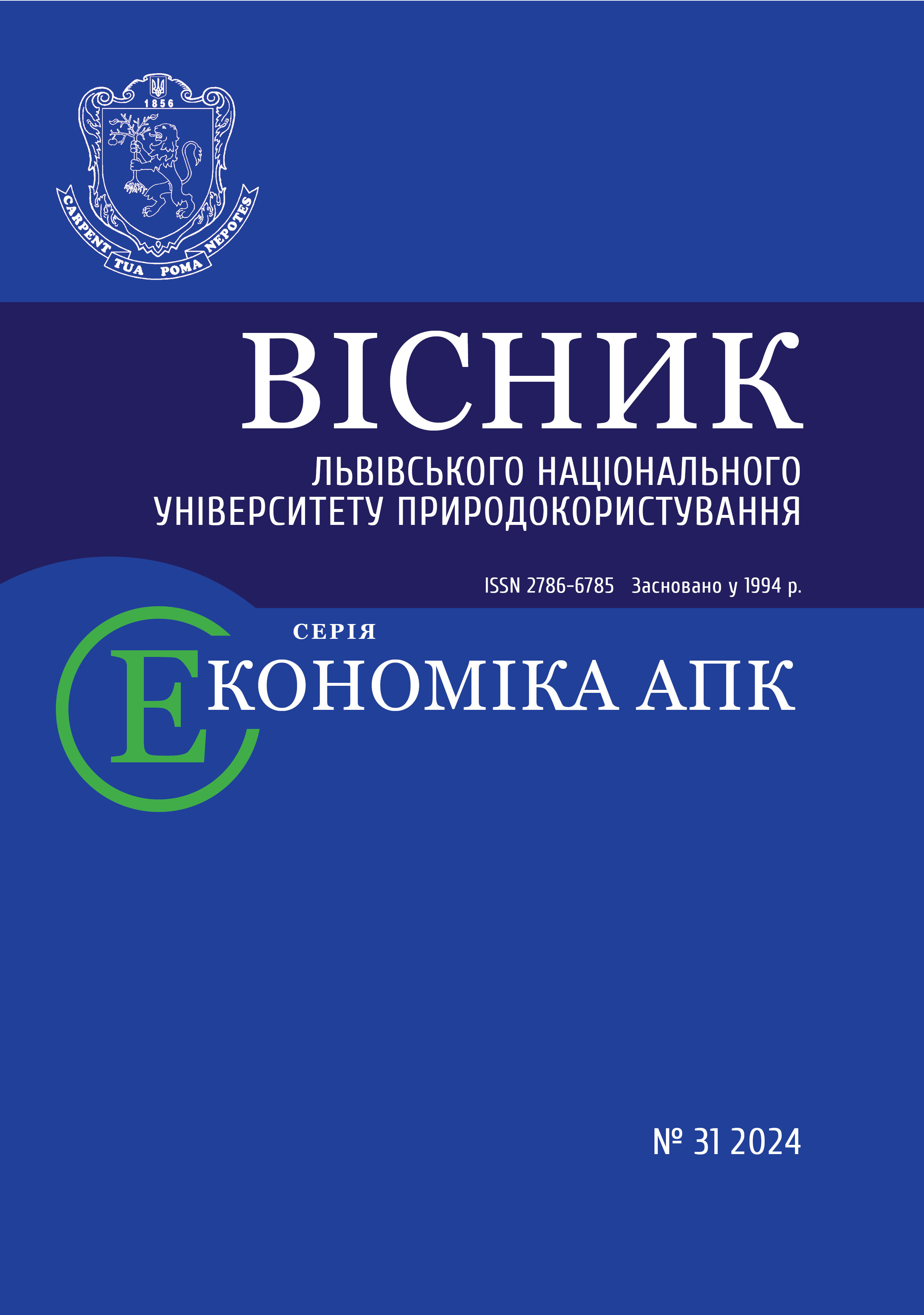THEORETICAL AND METHODOLOGICAL FUNDAMENTALS OF CLUSTERING AS A TOOL FOR MANAGING THE INNOVATION AND INVESTMENT DEVELOPMENT OF INDUSTRIAL ENTERPRISES
DOI:
https://doi.org/10.31734/economics2024.31.019Keywords:
clustering, innovation and investment development, industrial enterprises, competitiveness, internationalizationAbstract
The research discusses the theoretical aspects and methodological approaches to clustering in the context of managing the development of industrial enterprises. The authors analyze the impact of global economic and scientific-technological changes on economic development, emphasizing the importance of innovation and collaboration among enterprises in the current turbulent market environment. The article examines the historical development of cluster theory, from Alfred Marshall's concept of industrial districts to contemporary studies by Michael Porter and other researchers. It also highlights the role of clusters in stimulating innovation activity, enhancing competitiveness, and improving business process efficiency. Additionally, the authors emphasize the significance of clustering for business internationalization and strengthening regional economies. The advantages of the cluster approach, such as increasing competitiveness, improving the quality of human resources, promoting internationalization, and fostering innovation development, are analyzed. However, the authors also note certain drawbacks and challenges of the cluster approach, including the imperfection and incompleteness of the legislative framework as an effective basis for regulating cluster activities; the need for developing methods of competent cluster management; dependence on regional conditions; the risk of internal competition; and significant coordination costs within clusters. The importance of effective management and state support for ensuring the sustainable development of clusters is emphasized. The authors conclude that clustering is a vital tool for managing industrial enterprises' innovation and investment development, especially in the context of post-war economic recovery in Ukraine with increasing competitiveness, boosting innovation activity, and promoting internationalization.
References
Deloitte. Progress in computerization and informatics. Retrieved from, 2024. URL: https://www2.deloitte.com. (Accessed May 28, 2024).
Enright M. J. Regional clusters and economic development: A research agenda. In Business Networks: Prospects for Regional Development. Berlin: De Gruyter, 1996. P. 190–213.
Homeniuk M. O. Cluster as an innovative form of territorial development. Scientific Bulletin of Mukachevo State University. Series: Economics. 2019. No 1. P. 76–81.
International Monetary Fund. 2024. Internationalization and isolationism. URL: https://www.imf.org. (Accessed May 28, 2024).
Krugman P. Geography and Trade. MIT Press, 1991.
Krugman P. What’s new about the new economic geography? Oxford Review of Economic Policy. 1998. No 14 (2). P. 7–17.
Kuzmin O., Stanasiuk N., Olikhovska M. Application of cluster approach to the development of industrial potential. Innovative policy and management support. Economics, Entrepreneurship, Management. 2017. No 4 (1). P. 41–48. https://doi.org/10.23939/eem2017.01.041.
Lämmer-Gamp T., Meier zu Köcker G., Christensen T. A., Clusters are individuals: Creating economic growth through cluster policies for cluster management excellence. Copenhagen; Berlin: Danish Ministry of Science, Technology and Innovation, 2013.
Marshall A. Industry and trade. Journal of the Royal Statistical Society. 1920. No 83 (2). P. 292. doi: https://doi. org/10.2307/2341084.
Marshall A. Principles of Economics. London: Macmillan and Co, 1890.
McKinsey. Progress in computerization and informatics. Retrieved from, 2024. URL: https://www.mckinsey.com. (Accessed May 28, 2024).
Molina Morales F. X., Martínez Fernandez M. T., Coll Serrano V. La eficiencia y la innovacion en las subredes de empresas. Un estudio del distrito ceramico español. INNOVAR. Revista de Ciencias Administrativas y Sociales. 2012. No 22 (46). P. 111–127. URL: www.fce.unal. edu.co/media/files/documentos/Innovar/v22n46/v22n46.pdf (Accessed May 28, 2024).
Morosini P. Industrial clusters, knowledge integration and performance. World Development. 2004. No 32 (2). Pp. 305–326. https://doi.org/10.1016/j.worlddev.2003.08.005.
Nekrasova L. A. Formation of the cluster as a direction of innovation development of the economy. Ekonomika: realii chasu. 2014. Vol. 2 (12). P. 132–138.
Porter M. E. Clusters and the new economics of competition. Harvard Business Review, 1998. P. 77–90.
Scheer G., Zallinger L. Cluster Management – A Practical Guide Part A: Overview. Deutsche Gesellschaft für Technische Zusammenarbeit (GTZ) GmbH, 2007.
Schumpeter J. A. The Theory of Economic Development: An Inquiry into Profits, Capital, Credit, Interest, and the Business Cycle. Harvard University Press, 1934.
Solvell O., Lindqvist G., Ketels C. The Cluster Initiative Greenbook. Stockholm: Ivory Tower, 2003.
Wilson J., Wise E., Smith M. Evidence of the advantages of cluster policy: Toward a generalized framework of effects. Policy Sciences. 2022. No 55. P. 369–391. https://doi.org/10.1007/s11077-022-09460-8.
World Economic Forum. Development of communication and connectivity tools, 2020. URL: https://www.weforum.org. (Accessed May 28, 2024).


